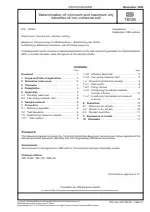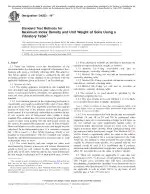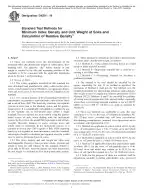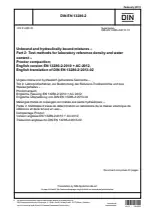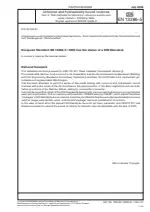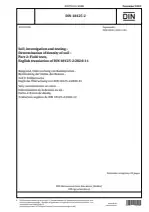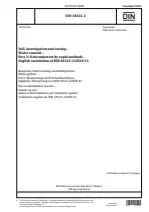Soil Investigation and Testing: Determination of Density of Non-Cohesive Soils for Maximum and Minimum Compactness
Also Known As:
DIN 18126 is a standard that focuses on soil investigation and testing, specifically the determination of the density of non-cohesive soils for maximum and minimum compactness. The purpose of this standard is to evaluate the characteristic quantities in foundation and earthworks, with the aim of ensuring the structural safety of construction projects.
The standard outlines the laboratory tests required to determine the maximum and minimum compactness of non-cohesive soils. These tests serve as a means to assess the density of the soil and evaluate its suitability for construction purposes. The results obtained from these tests play a crucial role in the verification of the structural safety of the construction works.
By following the guidelines outlined in DIN 18126, engineers and geotechnical professionals can conduct reliable soil investigations and tests to determine the density of non-cohesive soils. This information is crucial for making informed decisions regarding the design and construction of foundations and earthworks, helping to ensure the stability and durability of the structures.
| Descriptors | Compactibility, Compactness, Construction, Definitions, Density, Dimensions, Dry density, Earthworks, Evaluations, Flow tables, Foundation engineering, Geotechnics, Grain sizing, Impact forks, Pore volume, Soil sampling, Soil surveys, Soil testing, Soils, Storage, Subsoil, Testing, Tolerances (measurement), Trials, Bottom, Bearings, Ground, Floors, Jolting tables |
| ICS Codes | 93.020 - Earthworks. Excavations. Foundation construction. Underground works |
| Language(s) | English |
| File Size | 286.7 KB |

